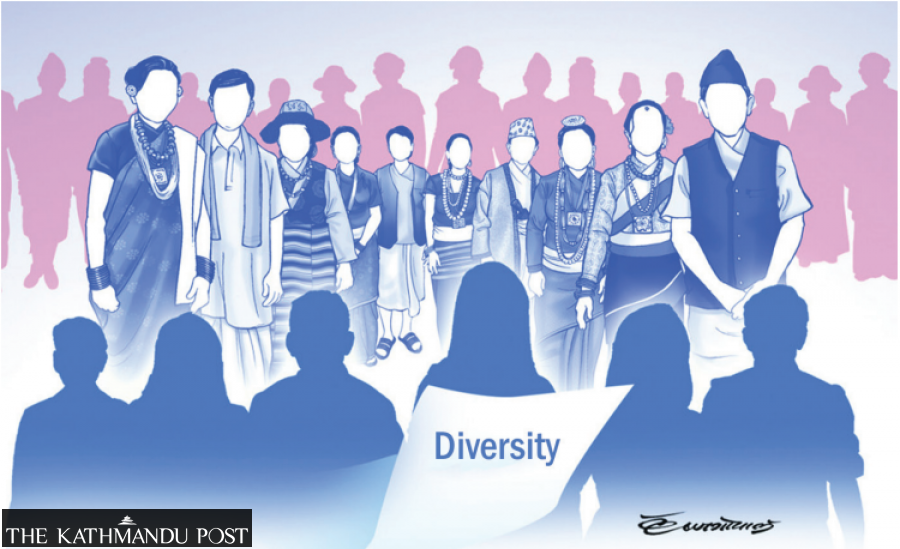Editorial
Decade-long struggle
There needs to be a clear-eyed scrutiny of the functioning of the seven inclusion commissions.
When the Constitution of Nepal was promulgated in 2015, it brought with it many hopes for the country’s historically marginalised groups, including Dalits, Janajatis, women, Muslims, Tharus and Madheshis. Article 27 established six designated commissions, along with the National Inclusion Commission. The goal was to elevate the social standings of these communities by addressing the systemic injustices they faced. The constitution will be a decade-old this September. The mandated review of these commissions, as outlined in Article 265, is thus on the cards. Only a comprehensive review can determine if the objectives for the formation of these commissions have been met—and, if not, what to do about it.
But the review process lacks constitutional and legal clarity, as the national charter doesn’t specify the objectives of the review or how it should be carried out. Nor has there been any discussion on this in Parliament. This not only lays bare the systemic neglect of lawmakers, authorities and political leaders towards Nepal’s inclusion agenda. More seriously, such arbitrary legal provisions might undercut the very rationale of these vital commissions. As discussions on constitution amendment continue, there are even fears that these commissions might be done away with.
Over the years, despite their mandate of providing policy recommendations to the government, the commissions have not worked as expected. However, it is also true that underfunding, lack of resources and political apathy have hindered their work. For instance, even five years after the constitution provided for such commissions, the commissions couldn’t set up their full offices. This was largely due to disagreements between the then-ruling party, the CPN-UML, and the main opposition, the Nepali Congress. Like other state bodies, these commissions have also become political battlegrounds, with cronies of political leaders appointed over competent candidates. As of now, the commissions are still short of resources, and its officials lament how its recommendations are routinely ignored.
Legal ambiguities exacerbate the sorry state of these commissions. To take one example, as pointed out by policy research organisations Niti Foundation and Social Science Baha’s in their 2022 research, while the functions, duties and powers of Dalit, Women and Inclusion Commissions are explicitly mentioned in the Constitution, the other four commissions—Indigenous, Tharu, Madheshi and Muslim—only have federal law mandates with no clear definition of their roles in the constitution. Such legal gaps increase scrutiny over their legitimacy, and the anomalies weaken the trust of the marginalised groups these commissions supposedly serve.
Some parliamentarians emphasise the need to thoroughly evaluate each commission’s performance by forming sub-committees under a joint parliamentary committee, as recently recommended by the Niti Foundation. They also suggest a transparent review process and broader consultations with human rights experts before deciding to dissolve or continue with the bodies for the next decade. Really, a hasty or superficial review would betray the marginalised communities. Lawmakers must discuss their suggestions and also scrutinise them. In order to address operational inefficiencies, equipping these commissions with adequate resources, functional autonomy and mechanisms to ensure that their recommendations are acted upon is crucial. But again, and most importantly, the commissions need legal clarity.
Despite constitutional guarantees, Dalits in the country still face caste-based discrimination and violence. Women continue to struggle to get a level playing field with their male counterparts. Concomitantly, the representation of Muslims, Tharus and Indigenous people in political positions and government bodies is far from satisfactory. The ruling coalition has failed to embrace the spirit of inclusiveness in the current Cabinet, as the 22-member team has only two women and not a single Dalit. It is important to consider these ground realities while reviewing the commissions’ successes and failures.




 8.26°C Kathmandu
8.26°C Kathmandu














